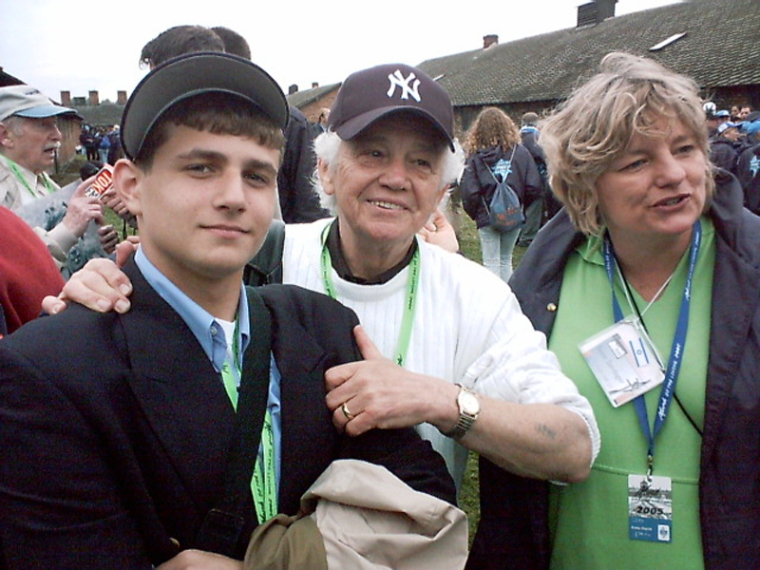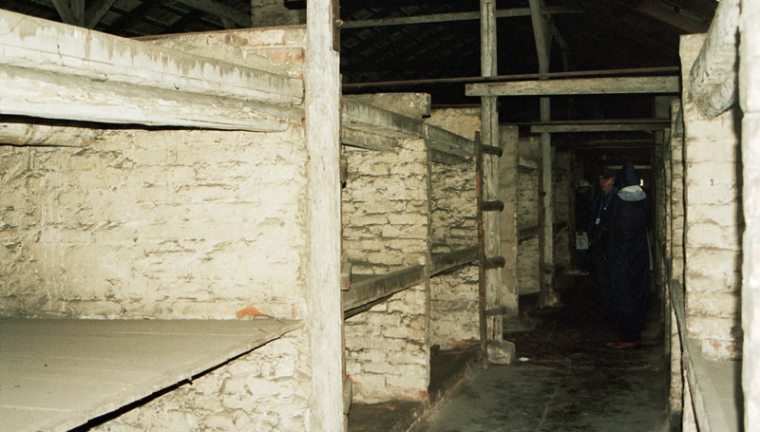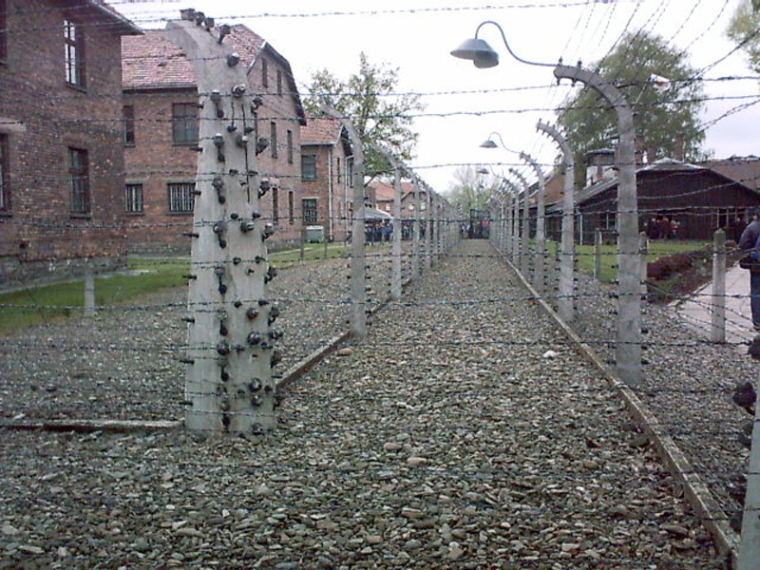
It is ten years since the death of Miep Gies at aged 100. Recently there have been many ABC National Radio shows remembering stories of sacrifice of individual citizens who helped Jewish families in Europe during World War II.
Miep Gies was the (then) young woman who helped the Frank family and friends in hiding for – not two weeks – not two months – but two long years from 1942 to 1944.
If you visit Amsterdam today, you can see that apartment, kept as a museum in the way it would have been at that time.
Unfortunately, despite the success of the hiding place, the family was eventually discovered and reported to the German secret police by a common burglar.
Gies' self-sacrifice epitomises many other anecdotes from The Netherlands, where many, many individuals showed particular stoicism and bravery in these acts of kindness.
Anne died from disease at the Bergen-Belsen concentration camp, but her father Otto returned from Auschwitz and was presented with the diary by Gies. First published in 1947, the teenager's memoir became one of the most renowned accounts of Jews hiding from Nazi persecution.
Born Hermine (Miep) Santruschitz in Vienna in 1909, Miep Gies moved to the Netherlands at age 11, according to a biography published on her website. In 1933, she began working for Otto Frank at his Opekta trading company.
At great risk to her own safety, Gies helped bring food and news from outside to the Franks and another family plus another single man in the secret annex of Opekta's. She received numerous honours for her role, including from Israel's Yad Vashem Holocaust memorial centre.

Anne Frank
My wife Delma Tronson once again recently watched the Anne Frank Story 'movie' and made the following observations.
There were many people, not just one girl. Eight people from three very different types of family situations lived that small, two-bedroom apartment. They could never go outside. They needed to be quiet during the day, so as not to draw attention to the secret annex, to the extent of not flushing the toilet until night-time.
During that long time, they had to contend with each other's foibles. Even when family members are in close proximity for a few hours there is the inevitable verbal stoush, but in this situation they could not afford to even slam a door or raise their voices in argument or discussion.
They were sustained by the knowledge that they were involved in a critical mutual survival situation. One mistake, one abnormal sound out of place, they were all done for, and ultimately this is what happened. To have lasted that long, in such a confined space, was a phenomenal effort.
But most of all, the dedication of the support network that included Miep Gies was in itself an amazing feat of secrecy. Under circumstances where everything was in short supply, and all goods had to be bought with a personal 'ration book', the families were supplied with food and the basic necessities such as bathroom needs (toilet paper, women's toiletries). These citizens risked their own lives in first securing the goods, and then delivering them.
These stories have been immortalised in the diary of Anne Frank, a young girl, an aspiring writer at 13 years old at the time of the Nazi invasion into Holland, who kept a diary of the that time they were in hiding in a small apartment in a secret annexe at her father's shop in Amsterdam. Miep Gies found the diary after the family were taken, and kept it hidden until after the War.
It is a cruel act of Nature that, after the War, Europe suffered one of its worst winters ever. Because of the destruction of infrastructure and farming communities, food was in short supply and instead of being 'rewarded' for their superhuman efforts in helping others, the people of The Netherlands were particularly hard hit by famine; and then, on top of that, by the flood of 1953 when the dykes holding the Zuider Zee broke due to lack of long-term maintenance. Many families steadfastly rebuilt their farms and their lives; but many chose to emigrate.
Dutch immigrants
I recall when growing up the many Dutch immigrants in the 1950s, and that in general they were well regarded by Australians as cheerful, hard-working and willing to help and be part of the community they had moved to. Moreover many were involved in local churches especially school religious instruction.
Finding peace and prosperity in their new home was part and parcel of the process of immigration; Australians in general have been kind to them, as their people had been helpful to those in need during the War.
Delma Tronson says we have such an insight because Anne aspired to be a writer, and as she had heard on the radio that there would be a prize for the best 'War diary', she decided it would be a good way to practice her chosen craft.
This young girl thus recorded her inner most thoughts throughout this period; it is not only a remarkable literary effort, but its historical value in recording her own personal experience of hiding from the Nazi occupation of Holland is recognised for all time to come.
But there is more, in that this is a story to remember. It reveals so much of the human spirit, a need to live with others in order to survive, of right over wrong and ultimately, that the record of the experience lives on.
There were two things that enabled this to happen: one young girl had long-term career aspirations as a writer, was supported in this by her family, and was prepared to open her soul to the world; and individuals were prepared to sacrifice their own personal safety to help other human beings to survive.
We must never forget - Holocaust Remembrance Day - is an annual commemoration of such atrocities


Dr Mark Tronson - a 4 min video
Chairman – Well-Being Australia
Baptist Minister 45 years
- 1984 - Australian cricket team chaplain 17 years (Ret)
- 2001 - Life After Cricket (18 years Ret)
- 2009 - Olympic Ministry Medal – presented by Carl Lewis
- 2019 - The Gutenberg - (ARPA Christian Media premier award)
Gutenberg video - 2min 14sec
Married to Delma for 45 years with 4 children and 6 grand children